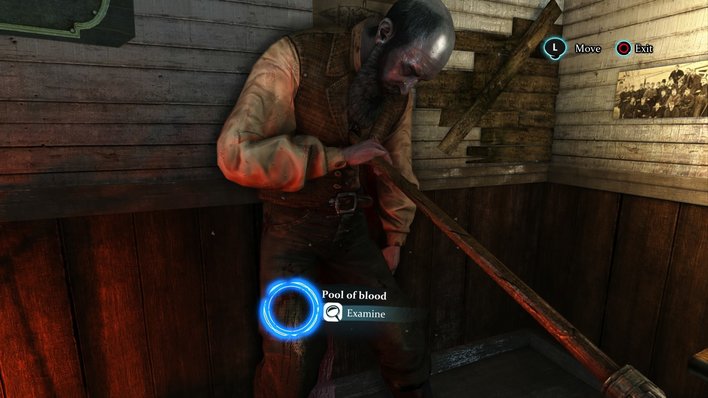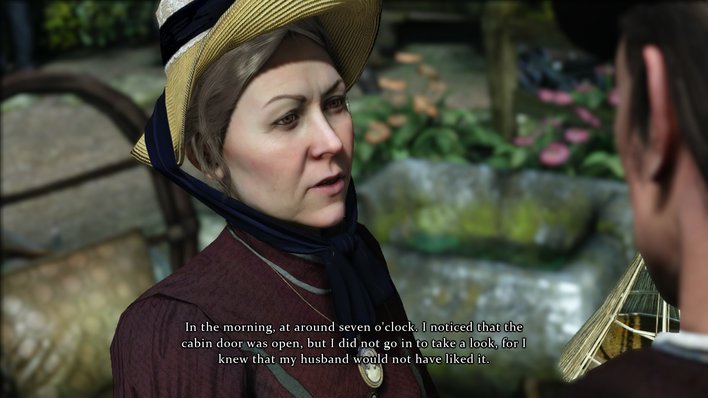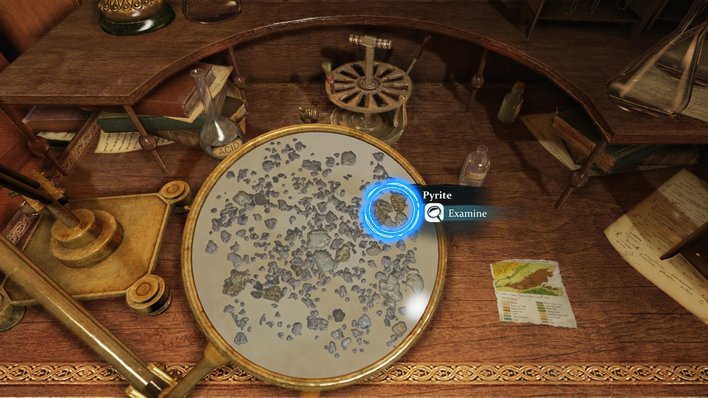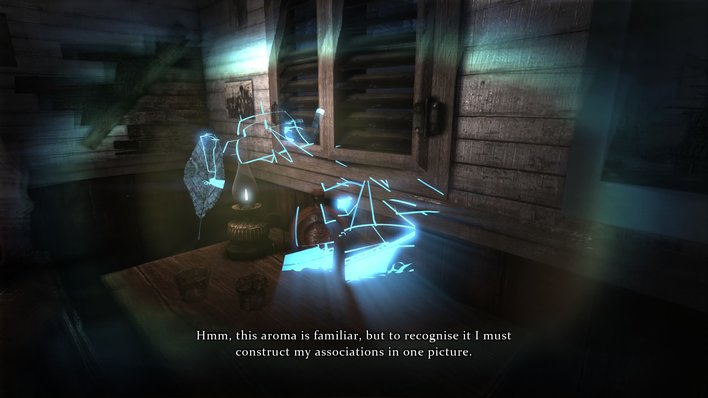While some are quick to stereotype games as all being a bit of mindless fun (admittedly, usually those who've never played them), anyone who's ever picked up a point and click adventure game knows the truth is somewhat different. With logical leaps that require an... er... acquired way of thinking, hints that you'll miss if you so much as blink, and a never ending list of puzzles and riddles to solve, these are games that you can only really get the most out of if you're willing to sit there and burn the midnight oil, grinding your brain's gears over a particularly tricky puzzle, or trying to see a connection between events where none seem obvious - and Crimes and Punishments: Sherlock Holmes is one such game.
As you'd likely expect from the name, Crimes and Punishments: Sherlock Holmes is a game about solving crimes (and if you hadn't figured that out already, you may as well stop reading now). Putting you into the deerstalker hat and trusty pipe of the famous detective himself, it's up to you, as the finest investigator in the land, to take on any cases Scotland Yard throws your way.
Far from being tapped to figure out who nicked this old lady's handbag, or which reckless young gent was flashing at passers-by from his window, Sherlock is only called in to solve the most dastardly of crimes - the ones Scotland Yard simply can't handle on their own. From a mysterious murder in a Roman baths, where the deadly act itself was shrouded by the steam that filled the room, to a train that simply disappeared into the night, right as it was approaching a platform, these are whodunnit mysteries that'll push your brain, and test your logic to its limit.

Oh dear. That doesn't look very pleasant.
Each case has a number of vague "stages" to it, although every crime you investigate will follow a fairly similar path. First, you'll have to head to the scene of the crime to have a bit of a nose around, and try to spot any clues. Whether you're looking for a murder weapon, a distinctive trail of blood, or any other mark, peculiarity or out-of-place object that may later become significant, it's up to you to cast your ever observant eye over the scene of the crime, and spot the things the other officers can't. The ever helpful Inspector Lestrade is usually on hand to ensure nothing has been touched - so when you arrive, you'll find the scene exactly as it happened. All that remains is for you to gather what information you can, to try and figure out exactly whodunnit.
Unfortunately, while it may give you a few helpful pointers, examining the body alone is never usually enough to let you collar the crook - so the next thing to do is to grill any witnesses for any little secrets they may be willing to let spill. One of the new features for Crimes and Punishments is the ability to perform a "character profile", by casting Sherlock's eye over the person's appearance, and, well, judging a book by its cover. Standing with your shirt undone? You must be a scruffy, and unreliable fellow. Got a bruise under your left eye? That might make you a brawler. All you have to do really is move your cursor over the character, and press when it turns blue - but this is still an interesting way of building up a bit of a back story in your mind to the character, and what sort of person they are.

Suspicious placement of scarf around hat, pendant around her neck... I think she did it
After you've examined the scene of the crime, and had an initial chat with the witnesses, it's here each case begins to branch, as you have to investigate the things you've found. When you were examining the crime scene, you may have found some evidence that can be examined in further detail back at your office - running a chemical test, for example, to see what a suspicious lump of metal actually is, or testing some blood to discover why it's so liquid. The people you spoke to may also have revealed extra tit-bits that you can put to good use, leading you to new locations, or simply giving you a reason to go back and check the crime scene again.

It's pyrite, alright. But what does that mean?
Slowly but surely, as you find new pieces of evidence, or examine the stuff you've got, you'll start to develop a better picture of what actually went on - or at least have a few options. This is where the game's deduction board comes into play - an initially very confusing, yet often quite helpful way of getting your logic together. Every time you make an important discovery, it'll be added to the deduction board - and, if you can combine it with another important fact, you can make a deduction. Place several, and they'll start to form a pattern, leading you to a conclusion that either requires you to check somewhere else, perform a test, or interrogate a suspect at the station.
There are countless little puzzles you'll come across during your examination of the crime scenes, too. From strange smells that cause bits of an "image" to appear in Sherlock's head, where you'll have to use the analogue stick to rotate them and form a clear picture, to locks that need to be cracked, and even replica crossbows to be reconstructed. Anything that needs to be done to give yourself a clearer picture of what happened can be done - and often, new evidence will see you revisiting old places, talking to old friends, and taking the case in a totally different direction.
In fact, rarely ever is it totally obvious from the very start who's committed each crime, and the one you've mentally noted as the prime suspect will change on a regular basis, right up until the very end. And in many ways, this is a good thing, as it's fun to be kept guessing - but in another way, it also makes the cases feel a little bit hit and miss, as you can never be entirely sure who did it when the time finally comes to draw your conclusions, and collar the guilty party. Often, there are pretty big holes left in your logic surrounding motives, and you never really get to find out exactly what happened on the night in question.
At least part of that is deliberate, as there are several different endings to get here, with a branching storyline in place that will change your final result depending on how well you've done, and how accurate your deductions have been. As different pieces of evidence can be interpreted in different ways (which are signs of guilt, and which are just coincidences?), one clue can potentially incriminate two totally different people depending on how it's read, and how you choose to read them will determine who the evidence eventually points to. Once you've made your choice, you get the chance to choose whether to go easy on the crook, or let them suffer at the hands of the law, which also has an effect on how the story's conclusion plays out. With it all said and done, you're given the option of revealing who the "true" criminal was in each case (i.e., whether you've got it right), with a warning it may take a lot of fun out of the game's eventual ending, but still. Sometimes it'd be nice to be able to find out a little bit more about each criminal's motive.

Shuffle the pieces around to form the picture. Warning - it's a bit fiddly.
Perhaps the biggest problem with Sherlock, though, is that it doesn't have so much of a learning curve, as a learning cliff. When you first sit down with the game, there's nothing in the way of a tutorial or introduction to anything you can do - and when Sherlock has so many cool little abilities and tests he can run, not to mention the all important deduction board, which takes a lot of figuring out, it can feel like the hardest case you'll have to crack is how to actually play the game in the first place. When small icons appear in the corners of the screen, or hiding in your blindspot, you won't know what they actually do until you press them; you won't even realise character profiles are a thing you can do unless you spot the icon beneath your dialogue options; and the deductions board is complicated enough it really needs a tutorial of its own. It's even stranger when you consider that Sherlock is a game that should have mainstream appeal in spades. It should appeal to people who don't "usually" play games, yet alone games like this. Yet to them, it'll be totally impenetrable.
Still, the lack of tutorials and slight lack of polish only put a slight downer on what is otherwise an enjoyable game. With puzzles to solve, crooks to catch, and that famous line to utter, this is a slower paced, more involved, more considered type of game - and one we're dying to see more of.
Format Reviewed: Playstation 4



















